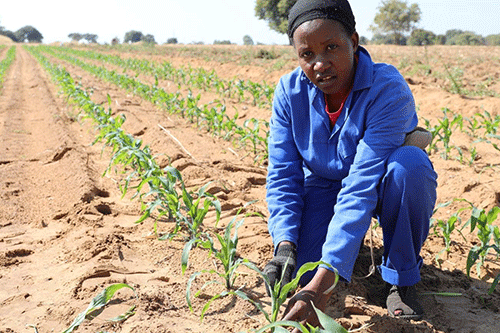Agriculture minister Calle Schlettwein said if Namibia is serious with the agricultural sector as the driver for economic growth, then much more still needs to be done for the sector.
“If we are serious with prioritising agriculture as the driver of growth in the real economy, as the driver to eradicate poverty, as a driver to your own inequality, the sector must be resourced better,” he said, yesterday during the opening of the Intersectoral Coordination and Technical Exchange on Food Security and Agronomic Support Initiatives Workshop in the capital.
He noted the country cannot have ambitious goals and does not supply the necessary inputs and funding in public and private sectors to achieve these objectives. According to the minister, this is a gap that needs to be urgently addressed.
The three-day workshop that kicked off yesterday focuses on food security and agronomic support initiatives with the goal of strengthening the resilience and coordination of Namibia’s agri-food sector.
Schlettwein added that to end all forms of hunger and malnutrition by 2030, Namibia should promote sustainable agricultural production schemes, support small scale farmers and ensure equal access to land, technology and markets.
“Our country has enormous potential, not only to feed itself and eliminate hunger and food insecurity, but to also be a major player in global food markets. This potential lies in its land, water and oceans, in its men and women, in its knowledge and global market,” he added.
Furthermore, he noted recognising this opportunity, the Namibian government chose agriculture as one of the drivers of economic growth. Agriculture is a sector that contributes towards eradicating poverty and hunger, boosting intra-Africa trade and investments, sustainable resource and environmental management, and job creation, he said.
However, the agriculture minister was quick to note the country will boost its food production at home once the envisaged 2500ha for Katima Farm/Liselo in Zambezi region and 5000ha at Neckartal Dam in //Kharas are fully developed into irrigation schemes.
The new land developments, he said, have the potential to make Namibia a net exporter of staple food and horticulture produce which will contribute to regional food security.
The sector recorded a moderate growth in 2022, estimated at 3.6%, owing to increased activity in both livestock and crop sub-sectors.
The agriculture sector remains the backbone of the Namibian economy and the sector has over the years been one of the main drivers contributing to the national economy significantly. About 70% of Namibians depend on the sector due to its nature of creating sources of income, supporting the livelihoods of the majority of its people, food security, foreign earnings and provision of raw materials to the manufacturing sector.


